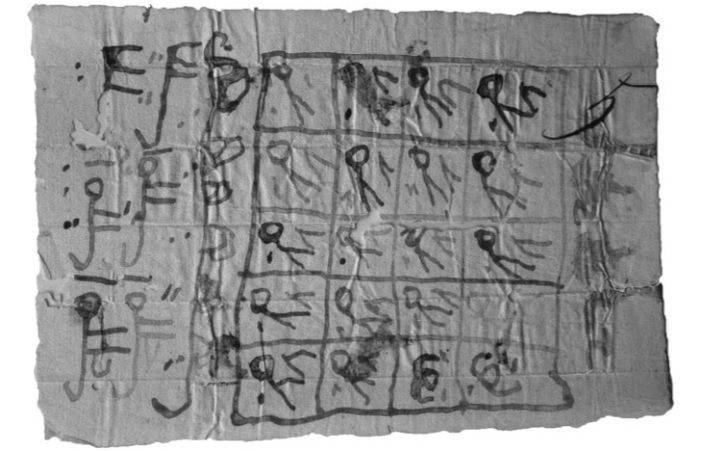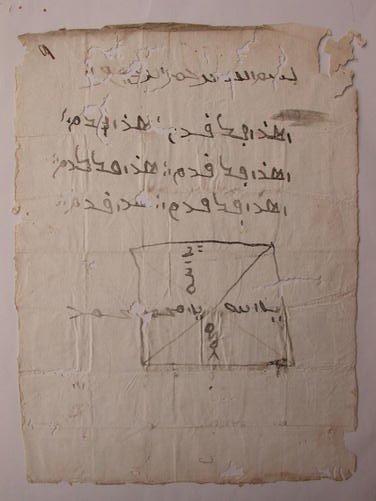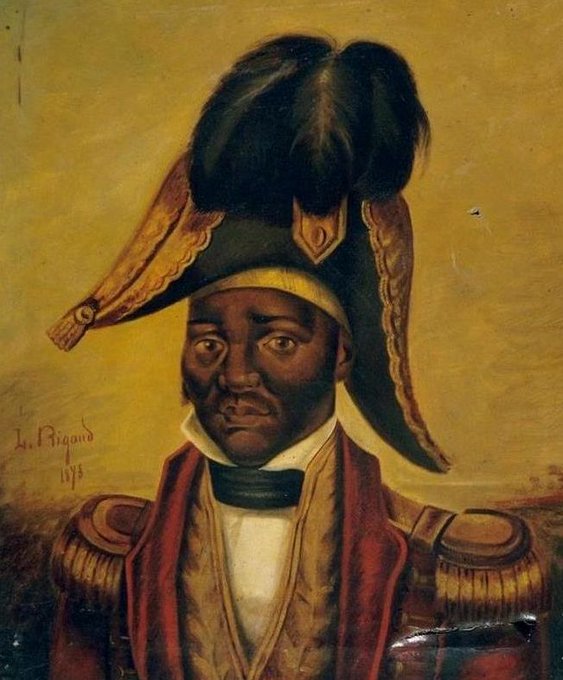While today religious leaders grumble about protests and #BlackLivesMatter  https://abs.twimg.com/hashflags... draggable="false" alt=""> , historically Black Muslim leaders were at the heart of uprisings against slavery
https://abs.twimg.com/hashflags... draggable="false" alt=""> , historically Black Muslim leaders were at the heart of uprisings against slavery
In honor of Juneteenth, a quick thread on Islam, the Americas, slavery, and liberation.
In honor of Juneteenth, a quick thread on Islam, the Americas, slavery, and liberation.
Black Muslim slaves repeatedly led uprisings against colonists from the 17th-19th C
The threat was serious enough for the Spanish Crown to introduce laws limiting importing of Muslim slaves in the 16th century for they were “arrogant, disobedient, rebellious, and incorrigible.”
The threat was serious enough for the Spanish Crown to introduce laws limiting importing of Muslim slaves in the 16th century for they were “arrogant, disobedient, rebellious, and incorrigible.”
From Brazil to Haiti and the US, Black Muslim revolutionaries led uprising after uprising, often aligning and working with indigenous people.
The colonists were terrified slaves were converting indigenous populations to Islam, fearing they were teaching “bad customs” to “peaceful” nations.
For Black Muslims their liberation was articulated through Islam. As servants of Allah they were slaves to no one, least of all Christians.
The material culture attests to this worldview.
The material culture attests to this worldview.
In the United States, Black imams would write prayers on scraps of paper that revolutionaries would wear on their bodies as amuletic and talismanic protection
Historians have uncovered mini Qur& #39;ans placed in pouches worn around the neck. Like the one here in the portrait of Ayuba Suleiman Diallo by Hoare
Black Muslims used the power of religion to organize. The words of the Qur’an were invoked to preach justice and liberation.
Black Muslims used the power of religion to organize. The words of the Qur’an were invoked to preach justice and liberation.
In Brazil, Muslims lead the Male` Revolt during Ramadan in 1835, 30 years before Juneteenth.
Inspired by the Haitian Revolution, they armed themselves spiritually with talismanic prayers and images of Haitian President Dessalines placed in pouches
Inspired by the Haitian Revolution, they armed themselves spiritually with talismanic prayers and images of Haitian President Dessalines placed in pouches
Talismans such as these show us the transnational and global struggle for liberation, the networks of knowledge and news, and the religious-spiritual worldview of the revolutionaries
In Haiti, the religious leader Makandal created a vast network of organized revolutionaries.
Makandal was a marabout trained in Islam and the spiritual traditions of North Africa.
He was reputed to have visions of the future and a vast knowledge of herb lore and talismans.
Makandal was a marabout trained in Islam and the spiritual traditions of North Africa.
He was reputed to have visions of the future and a vast knowledge of herb lore and talismans.
His network was identified by the knotted and tied amulets they wore.
He used his knowledge of herbs to create poisons and with his network of revolutionaries took out hundreds of slave owners.
Black Muslim slaves quickly earned the reputation of warriors and sorcerers, of rebels, and revolutionaries
Black Muslim slaves quickly earned the reputation of warriors and sorcerers, of rebels, and revolutionaries
In all of these cases Muslims used their makeshift religious spaces to organize, used lunar calculations and holy days to time their actions, and relied on a network of the faithful to carry messages in Arabic.
Language and symbology united them across territories
Language and symbology united them across territories
The complex formulae for creating talismans demonstrated high levels of literacy, memorization of the Qur’an, and a deep knowledge of esoteric sciences
Religious sermons invoking Qur’anic verses galvanized the people while talismans and prayer objects were used to bestow confidence.
For more, you can read my thread on the Male` revolt here: https://twitter.com/aaolomi/status/1141434515140648960
Read">https://twitter.com/aaolomi/s... Margarita Rosa& #39;s work on the duas of the enslaved: https://yaqeeninstitute.org/margarita-rosa/duas-of-the-enslaved-the-male-slave-rebellion-in-bahia-brazil/#.XQqM3IhKg2w
And">https://yaqeeninstitute.org/margarita... check out Sylviane A. Diouf& #39;s book Servants of Allah https://nyupress.org/9781479847112/servants-of-allah/">https://nyupress.org/978147984...
Read">https://twitter.com/aaolomi/s... Margarita Rosa& #39;s work on the duas of the enslaved: https://yaqeeninstitute.org/margarita-rosa/duas-of-the-enslaved-the-male-slave-rebellion-in-bahia-brazil/#.XQqM3IhKg2w
And">https://yaqeeninstitute.org/margarita... check out Sylviane A. Diouf& #39;s book Servants of Allah https://nyupress.org/9781479847112/servants-of-allah/">https://nyupress.org/978147984...

 Read on Twitter
Read on Twitter





